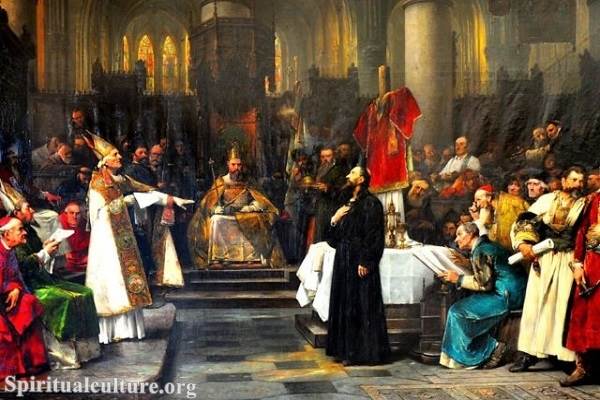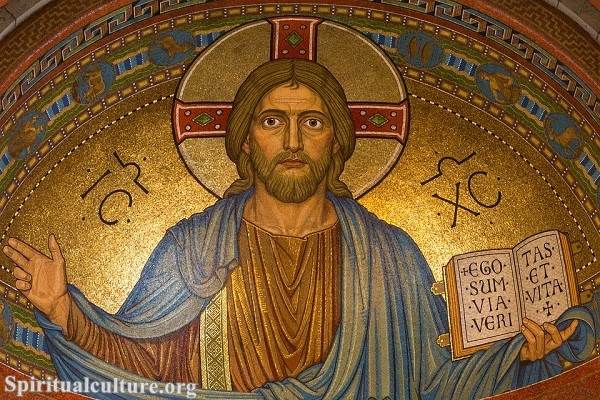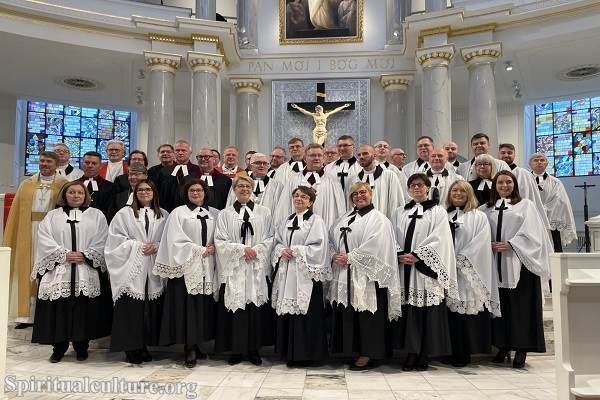This Reformation was a movement against what its followers considered to be errors in the Roman Catholic Church. The term ‘Protestant’ itself derives from the Latin “protestari”, meaning to declare publicly, and was used to describe the German princes who protested against the Catholic Church’s decisions in the 16th century.
Protestantism: Core Beliefs
The Protestant religion is based on the fundamental belief of the Bible as the sole authority, a doctrine known as ‘Sola Scriptura’. Protestants believe in the supremacy of the Holy Scriptures over traditions and ecclesiastical structures. This is in contrast to the Catholic Church, which gives equal authority to the Bible and Church traditions.
Another pivotal belief in Protestantism is the doctrine of ‘Sola Fide’ or justification by faith alone. Protestants hold that salvation is a gift from God and can only be received through faith in Jesus Christ, not by human deeds or merits. This belief sets the Protestant religion apart from other Christian denominations that emphasize good works as part of salvation.
Varieties of Protestantism
Over the centuries, the Protestant religion has branched into various denominations, each with its own distinct doctrines, practices, and structures. Some of the major Protestant denominations include Lutheranism, Calvinism, Anglicanism, Methodism, and Baptist churches. Despite their differences, these denominations share common Protestant principles such as the authority of the Bible and justification by faith alone.
Lutheranism, named after Martin Luther, emphasizes faith and grace as the means to salvation. Calvinism, founded by John Calvin, focuses on the sovereignty of God in all aspects of life, including salvation. Anglicanism, the state religion of England, tries to find a middle ground between Protestantism and Catholicism. Methodism, with its emphasis on sanctification and social service, and Baptism, with its stress on adult baptism, are other significant Protestant denominations.
Protestantism Today
Today, the Protestant religion is one of the most widespread branches of Christianity, with millions of followers worldwide. It has significantly influenced Western civilization, contributing to the development of democratic and liberal values, scientific progress, and various cultural and artistic movements.
While the Protestant religion has diversified over time, it continues to uphold the Reformation principles of ‘Sola Scriptura’ and ‘Sola Fide’. The emphasis on personal faith and Bible study remains a hallmark of Protestantism.
Conclusion
The Protestant religion, with its rich history and diverse expressions, continues to be a major force in the religious and cultural landscape of the world. As we explore the complexities of Protestantism, we gain a deeper understanding of its unique perspective on Christianity. From its inception during the Reformation to the myriad of denominations it encompasses today, Protestantism remains a dynamic and influential part of the global religious community.
Understanding the Protestant religion is not just about comprehending theological beliefs and practices, but also appreciating its profound impact on society, politics, and culture throughout history. Its core tenets of scriptural authority and justification by faith alone have shaped and will continue to shape the lives of millions around the world.



